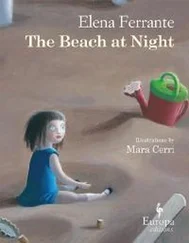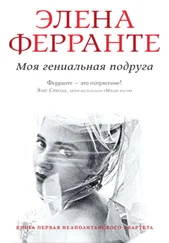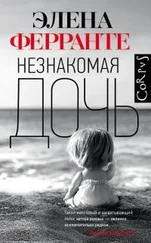She knew everything about the apartment, she dragged me into a kitchen whose dull colors seemed even duller in the low-watt electric light, checking to see if there was this, or that, criticizing the concierge for some sloppiness that she quickly began to remedy. At the same time, she never stopped talking to Roberto, she talked and talked, asking him about people she called by name—Gigi, Sandro, Nina—each of whom was associated with some problem regarding university life, about which she seemed to be well informed. Once or twice Roberto said: maybe Giovanna is getting bored, I exclaimed no, and she went on talking confidently.
It was a Giuliana different from the one who until that moment I’d thought I knew. She spoke decisively, sometimes even in a peremptory tone, and from everything she said—or alluded to—it was clear that not only did he tell her in detail about his life, about his problems at work, with his research, but he attributed to her the capacity to look after him and sustain him and guide him, as if she really had the necessary skills and wisdom. In other words, Roberto gave her credit and from that credit—I seemed to understand—Giuliana surprisingly, fearlessly, drew the strength to play that part. But then a couple of times he gently, kindly objected, said to her: no, it’s not really like that. Then Giuliana broke off, blushed, became aggressive, quickly changed her opinion, trying to show him that she thought exactly as he did. At those moments I recognized her, I felt the suffering in those snags, I thought that if Roberto had abruptly let her know that she was saying one foolish thing after another, that her voice for him was like a nail scratching metal, she would fall down dead on the floor.
Naturally, I wasn’t the only one who realized that the situation was fragile. Roberto, when those little cracks appeared, pulled her to him, spoke to her sweetly, kissed her, and I again got absorbed in something that momentarily blotted them out. It was my embarrassment, I think, that made him exclaim: I bet you’re hungry, let’s go to the café downstairs, they make really good pastries. Ten minutes later, I was eating sweets, drinking coffee, beginning to feel curious about the unknown city. I said so, and Roberto took us on a tour through the center. He knew everything about Milan and made an effort to show us the important monuments, recounting their history a little pedantically. We walked from a church to a courtyard to a square to a museum, without stopping, as if it were our last occasion to see the city before its destruction. Although Giuliana often mentioned that she hadn’t slept a wink on the train and was tired, she appeared very interested, and I don’t think she was pretending. She had a real desire to learn, added to a sort of sense of duty, as if her role as fiancée of a young professor imposed on her an always attentive gaze, an always receptive ear. I, however, felt divided. I discovered that day the pleasure of converting an unknown place to a precisely known place by adding the name and the history of that street to the name and history of that square, that building. But at the same time I recoiled in irritation. I thought back to instructive walks through Naples with my father, to his permanent display of knowledge and my role of adoring daughter. I wondered, is Roberto nothing but my father as a young man, that is, a trap? I looked at him as we ate a sandwich and drank a beer and he joked and planned a new itinerary. I looked at him as he stood apart with Giuliana, outside, under a big tree and talked about their affairs, she tense, he serene, she weeping a little, he with red ears. I looked at him as he came cheerfully toward me, his long arms raised, he had just heard about my birthday. I dismissed the thought that he was like my father, there was an enormous distance. It was I, rather, who felt I was playing the role of listening daughter, and I didn’t like that feeling, I wanted to be a woman, a beloved woman.
Our tour continued. I listened to Roberto and wondered why am I here, tailing him and Giuliana, what am I doing with them. Sometimes I lingered purposely on details of a fresco to which he hadn’t, I don’t know, given the right importance. I did it as if to upset that walk, and Giuliana turned and whispered: Giannì, what are you doing, come on, you’ll get lost. Oh, if I really could get lost, I thought at one point, leave myself somewhere, like an umbrella, and never have anything more to do with me. But if Roberto called to me, waited for me, repeated to me what he had already told Giuliana, praised two or three of my observations with remarks like: yes, it’s true, I hadn’t thought of that, then immediately I was fine and got excited. How wonderful to travel, how wonderful to know someone who knows everything, whose intelligence and looks and kindness are extraordinary, and who explains to you the value of what by yourself you wouldn’t be able to appreciate.
15.
Things became complicated when we got home in the late afternoon. Roberto found a message on the answering machine in which a cheerful female voice reminded him of an obligation he had that evening. Giuliana was tired, she heard that voice, I saw that she was really annoyed. Roberto instead reproached himself for having forgotten the date, it was a dinner fixed long ago with what he called his work group, all people Giuliana already knew. In fact, she immediately remembered them, erased disappointment from her face, and displayed great enthusiasm. But now I knew her a little, I could tell when something made her happy and when it made her anxious. That dinner was ruining her day.
“I’ll take a walk around,” I said.
“Why,” said Roberto, “you should come with us, they’re nice people, you’ll like them.”
I resisted, I really didn’t want to go. I knew that I would either be sullenly silent or become aggressive. Unexpectedly Giuliana intervened supporting me.
“She’s right,” she said, “she doesn’t know anyone, she’ll be bored.”
But he looked at me insistently, as if I were a written page whose meaning wouldn’t reveal itself. He said:
“You seem like a person who always thinks she’ll be bored but then never is.”
It was a remark whose quality surprised me. He didn’t say it casually but in the tone I had heard only once, in church: the warm, full tone of conviction that dazzled me, as if he knew more of me than I did. The equilibrium that had somehow or other lasted until that moment exploded. I really do get bored—I thought angrily—you don’t know how bored I get, you don’t know how bored I’ve been, how bored I am now. I was wrong to come here for you, I’ve only piled disorder on disorder, in spite of your kindness, your openness. And yet, just as that rage was ransacking me inside, everything changed. I wanted him to make no mistake. In some corner of my brain the idea was taking shape that Roberto had the power to clarify, and I wished that from that moment he—only he—would point out to me what I wasn’t and what I was. Giuliana almost whispered:
“She’s been too nice, let’s not make her do things she doesn’t want to.”
But I interrupted her.
“No, no, it’s O.K., I’ll come,” I said, but unenthusiastically, doing nothing to diminish the impression that I was going with them just so as not to create difficulties.
She looked bewildered and hurried off to wash her hair. While she was drying it, unhappy with the way it was turning out, while she was putting on her makeup, while she was wavering between a red dress or a brown skirt with a green shirt, while she was undecided between earrings and necklace or the bracelet, too, and questioned me, in search of reassurance, she said repeatedly: you don’t have to go, stay here since you can, I have to go, but I’d gladly stay with you, it’s all people from the university who talk, talk, talk, and you can’t imagine how full of themselves they are. That’s how she summed up what was scaring her just then, and she thought it scared me, too. But I had known that self-important babble of the cultivated since I was a child, that was all Mariano and my father and their friends ever did. Now, of course, I hated it, but it wasn’t the talk in itself that intimidated me. So I said to her: don’t worry, I’m coming as your friend, I’ll keep you company.
Читать дальше

![Элена Ферранте - История о пропавшем ребенке [litres]](/books/32091/elena-ferrante-istoriya-o-propavshem-rebenke-litres-thumb.webp)






![Элена Ферранте - Дни одиночества [litres]](/books/404671/elena-ferrante-dni-odinochestva-litres-thumb.webp)



